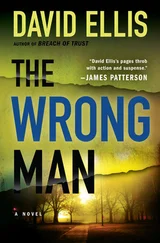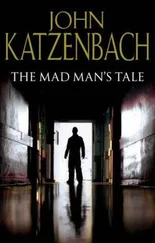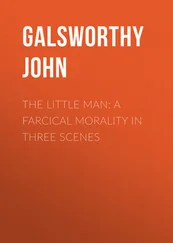I nodded. I was about to say something else, but he waved his hand in that way that I’d already seen, quieting me.
“Actually, another thing you need to always keep in mind,” he said hesitantly. “You must also understand that Michael O’Connell was…” he took a second to breathe in deeply “…relentless.”
A World of Confusion
For the first time in her relatively short life, Ashley felt as if her world were not only incredibly small, but now defined by so few things that it lacked anywhere that she could hide, anywhere she could escape to take a small breath of air and gather herself.
The minor irritations and small signs that she was being trailed and observed kept up steadily. Her telephone had become a weapon, filled with silences or heavy breathing. She no longer trusted her computer. She refused to check her e-mail because she could no longer tell who was sending it.
She told her landlord that she had lost her apartment keys, and he sent a locksmith around to replace the locks on the front door, although she doubted it did much good. The locksmith told her that the new locks would keep out most people, but not anyone who actually knew what he was doing. It wasn’t hard for her to imagine that O’Connell would be in the category of people who knew what they were doing.
At her job at the museum some of her coworkers complained that they were getting odd anonymous phone calls and unsettling e-mails suggesting that Ashley was acting behind their backs on some project or bad-mouthing them to management. When Ashley tried to explain that this was all untrue, she thought she wasn’t believed.
Completely out of the blue, one morning a gay coworker angrily accused her of being a closet homophobe. The charge was so ridiculous that Ashley was completely nonplussed. She was incapable of responding. Then a day or so later, a black coworker eyed her suspiciously and refused to have lunch with her that day. When Ashley followed her, trying to see what was wrong, she haughtily announced, “We have absolutely nothing to talk about. Leave me alone.”
After her evening graduate course, Modern European Impressionist Artists, her professor called her into her office and told her that she was in danger of failing if she did not start attending classes.
Ashley was taken aback. Her mouth opened and she stared at the woman, who barely lifted her head from the stacks of papers, slides, and large, glossy art books that littered her desktop. Ashley tried to look around, find something to focus on, and stop the dizzy sensation that threatened to overtake her.
“But that’s impossible,” Ashley said. “I’ve been at every class. The sign-up sheets should have my signature right in the middle.”
“Please don’t lie to me,” the professor said stiffly.
“But I’m not.”
“One of the graduate assistants goes over these, then puts them into the department system,” the professor said coldly. “Of the weekly lectures and additional slide presentations, which we’ve had more than twenty of so far, we can only find your name on two separate occasions. And one of those would be tonight.”
“But I’ve been there every time,” Ashley pleaded. “I don’t understand. Let me show you my notes.”
“Anyone can get someone to take notes for them. Or get someone to let them copy theirs.”
“But I’ve been there. Really. I promise. Someone has made a mistake.”
“Sure. Someone. A mistake. Right. It’s all our fault,” the professor spoke sarcastically.
“Professor, I think someone is deliberately sabotaging my attendance record.”
The professor hesitated, then shook her head. “I’ve never heard of that. What purpose would anyone have…”
“An ex-boyfriend,” Ashley said.
“I repeat, Miss Freeman, what purpose would that have?”
“He wants to control me.”
The professor hesitated again. “Well,” she said slowly, “can you prove this allegation?”
Ashley breathed in slowly. “I don’t know how.”
“You understand I simply can’t take your word for this?”
Ashley started to respond, but the professor held up her hand, cutting Ashley off in midprotest. “I told everyone at the start, in the very first lecture, that attendance was required. I’m not heartless, Miss Freeman. If someone has to miss a single session, perhaps even two, I can see that. Conflicts arise. People get into trouble. But attending class and studying the material in the course is your responsibility. I do not think you will be able to pass this course. In fact, I’m not inclined-”
“Give me a test. A paper. Something that would let me demonstrate that I’ve grasped the elements of each lecture.”
“I don’t do special releases or give special treatment,” the professor said briskly. “If I did, then I would have to do the same for every lazy or less than fully dedicated student who sat where you are sitting, Miss Freeman, quite willing to lie to my face and with one excuse or another, including my dog ate the homework and my grandmother died. Again. Grandmothers seem to die in my classes with depressing frequency and considerable regularity, and often many more times than once. So, no deal, Miss Freeman. Start coming to class. Get a perfect grade on the final-if you can, and I doubt it, because no one ever has-and perhaps I can eke out a passing grade for you. That remains to be seen. Have you considered some other field? I mean, perhaps art and graduate studies aren’t what you should really be doing.”
“Art has always been-”
The professor held up her hand again, shutting off Ashley’s response.
“Really? Perhaps I am wrong. Regardless, good luck, Miss Freeman. You will need it.”
Luck, Ashley thought, has nothing to do with anything.
She exited the professor’s office into a corridor that echoed with emptiness. Somewhere in a stairwell, or rising from another floor, she could hear laughter, but it was disembodied, almost ghostly. She stood, almost frozen in the vacant space. He was there, watching her. She slowly pivoted, as if he were always just beyond her sight, like a shadow trailing her. She listened for a sound, breathing, a whisper, anything concrete that would inform her that he was really there, but she could hear nothing.
Tears began to well up in Ashley’s eyes. She had no doubt that O’Connell had somehow managed to erase her name from the class rolls. She slumped against a wall, breathing in hard. All the hours she had spent in the classes, all the attention she had paid, the notes taken, the information, the knowledge, the appreciation of all the colors, shapes, styles and beauty of the artists studied in the class were somehow, in that moment, rendered moot. It was as if all those moments existed in some different universe where the Ashley that she thought she was went about her life, well on her way to being the person that she hoped to be.
He is making me disappear.
Anger filled her on a parallel course with despair. She pushed herself off the wall. This has got to stop.
Scott remained at his desk, hamstrung by what he had read. He felt as if something inside him had frayed. The words on the pages in front of him wavered, like heat above a highway, and he could feel the earliest tightening of panic in his chest.
Professor Burris had sent him a copy of his own article published in the Journal and the computer printout of the doctoral thesis written by a Louis Smith at the University of South Carolina. The thesis had been submitted to that school’s history department some eight months prior to Scott’s article, and it had, at its core, an examination of much of the same material. Their similarities were inevitable, and both pieces had relied on some of the same source material.
Читать дальше












